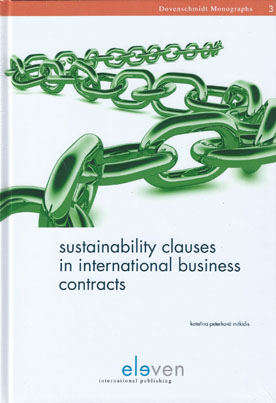
Despite the traditionally primary goal of business - to make profit within the applicable legal framework - , companies are now, under the imperative of corporate social responsibility (CSR), engaging in activities pursuing public goals in the social and environmental spheres.
Public and private actors have developed various tools that help to implement CSR into daily business operations. Many of these tools (such as CSR reporting or labeling) and their legal regulation have been widely discussed by legal scholars.
The research presented in this book studies one of the CSR tools that has received much less academic attention, although it is extensively used in practice: social and environmental clauses in international supply chain contracts.
The author: (i) examines the use of the legal instrument of private contract to pursue public policy goals relating to sustainable development; (ii) analyzes the legal framework SSCs operate in; (iii) discusses what legal effects SCCs may have both within contractual relations between the parties and outside; and (iv) evaluates the contribution of this activity and its legal effects in terms of achieving sustainable development objectives.
The aim is to explore both the potential and the limitations of contractual governance in achieving global sustainability. The book thus contributes to the current discussion on the development of new regulatory and governance designs to facilitate sustainable development by informing legislators and regulators as well as the business community about the opportunities in relation to contractual governance and its effects.